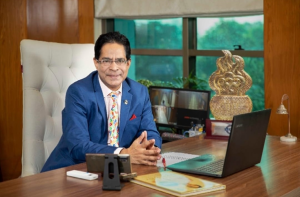
(Dr. Suborno Bose, Chairman, International Institute of Hotel Management ( IIHM) and CEO- International Hospitality Council (UK) is transforming hospitality with NamAIste, a proprietary Hospitality GPT. Developed with 60 countries, it provides operational accuracy, cultural context, and dual-use functionality. NamAIste serves as a 24×7 mentor, offering real-time guidance. Dr. Bose’s vision earned him the ‘AI Policy Leader of the Year 2025’ Award, focusing on human-centered AI, empathy, and sustainability. NamAIste’s knowledge base will expand, enhancing operational, efficiency, and guest experiences. By addressing talent shortages, NamAIste will revolutionize India’s hospitality industry with compassionate intelligence.)
BY DEBAJYOTI CHAKRABORTY
KOLKATA | 6 NOVEMBER 2025
In an exclusive interview with The Travel and Tourism Times, Dr Suborno Bose elaborates about this and much more. Excerpts of the interview:
The Travel and Tourism Times: What specific challenges in the hospitality industry does NamAIste solve that general AI models do not?
Dr. Suborno Bose: Generic AI models—while powerful—are trained on broad, non-specialised data. They lack the contextual understanding, operational depth, and cultural empathy that hospitality demands. NamAIste – IIHM Hospitality GPT is built on curated, domain-specific intelligence from hotels, institutions, and educators across 60 countries.
It addresses three chronic gaps:
* Operational Accuracy: General models often misinterpret SOPs or brand standards. NamAIste’s retrieval-augmented engine delivers precise, brand-neutral, real-world procedures—from F&B costing to front-office audits.
* Cultural Context: It understands emotional nuance—guest etiquette, service tone, culinary heritage—making advice locally relevant and globally consistent.
* Dual-Use Functionality: It bridges education and industry—serving both as a 24×7 classroom mentor and on-property operational assistant.
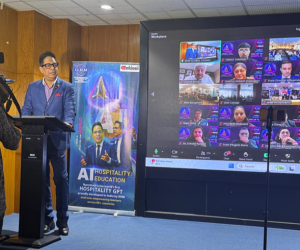
The Travel and Tourism Times: How has NamAIste been developed with input from over 60 countries, and what was that process like?
Dr. Suborno Bose: The foundation is the Global Knowledge-Sharing Declaration on AI in Hospitality Education, which we initiated and signed with institutions, educators, and policymakers from over 60 countries.
Through this global network—born out of our Young Chef Olympiad (YCO) platform—curricula, SOPs, sustainability frameworks, and case studies were contributed, reviewed, and digitised. This human-verified corpus now powers NamAIste’s model.
For me, this represents collaborative, not competitive, learning—where every nation contributes hospitality intelligence for equitable access and a shared future.
The Travel and Tourism Times: Can you provide examples of how NamAIste assists students, faculty, or hoteliers with real-time knowledge delivery and personalised guidance?
Dr. Suborno Bose: Students: NamAIste functions as a mentor—explaining complex culinary theories, generating mock interview questions, or designing sustainable itineraries aligned to UN SDGs.
· Faculty: It prepares teaching modules, assessment rubrics, and real-time updates on global industry trends.
· Hoteliers: It enables quick operational solutions—menu engineering, yield management, guest-complaint resolution scripts, or energy-saving checklists.
NamAIste thus becomes both a learning companion and a live operational consultant, transforming static classrooms into intelligent, interactive ecosystems.
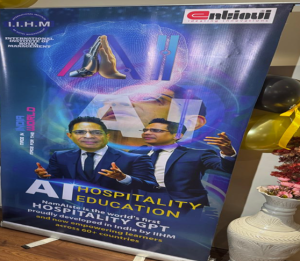
The Travel and Tourism Times: You recently received the ‘AI Policy Leader of the Year 2025’ Award from The Economic Times. What vision path and roadmap led to that recognition?
Dr. Suborno Bose: I am deeply humbled to learn that The Economic Times has chosen to confer on me the title of AI Policy Leader of the Year 2025. I view it not as a personal accolade but as an acknowledgment of what Indian education has achieved through courage and experimentation.
For me, this recognition validates a larger idea — that policy leadership today is not confined to government corridors. It can emerge from classrooms, labs, and institutions that dare to reimagine learning through technology. What began as an experiment within IIHM—and has been successful—has evolved into a policy model for responsible, human-centric AI integration in education.
As the conversation around AI intensifies, I often remind policymakers and educators that responsible AI is not about coding ethics into algorithms; it is about embedding empathy into purpose. AI must remain invisible to the guest and empowering to the worker. Its success lies not in its complexity but in how naturally it enables human connection.
Education as Policy in Action:
Policy is meaningful only when it reaches people. At IIHM, our students learn through AI-powered simulations, sustainability labs, and emotional-intelligence workshops. They use tools like GreenRoute Sustainable Travel GPT and the SDG GPT Builder to create responsible travel plans and zero-waste menus. This combination of empathy, innovation, and ethics has become the core of our pedagogy.
My roadmap positions AI as policy in action, not theory. At IIHM, we have built a working model for human-centred AI integration in education—tested at scale across our campuses and shared globally. My article “AI-Driven Education Is Not an Option—it Is the New Infrastructure of Opportunity” captures this journey: moving from classrooms to knowledge ecosystems while keeping data sovereign, purpose ethical, and access inclusive.
This living experiment—fusing empathy, sustainability, and technology—earned recognition as a new form of academic policy leadership: one that emerges not from bureaucracy, but from innovation and education.
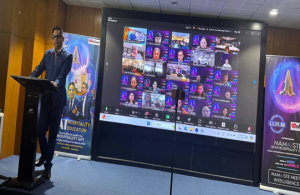
The Travel and Tourism Times: What are the immediate and long-term plans for updating and expanding NamAIste’s knowledge base and capabilities?
Dr. Suborno Bose: Immediate (next 6 months): Continuous ingestion of new hospitality data—latest SOPs, menu-engineering matrices, energy-efficiency protocols—reviewed by an educator-in-the-loop system to maintain accuracy.
· Mid-term (1 year): Integration with Learning Management Systems (LMS) and PMS/POS tools for real-time operational learning; multilingual support starting with major Indian and ASEAN languages.
· Long term: Customisable property-level modules where hotels can train NamAIste on proprietary SOPs privately, ensuring secure, contextual guidance.
The Travel and Tourism Times: In what specific ways will NamAIste enhance operational efficiency and personalise guest experiences in the future?
Dr. Suborno Bose: AI becomes the invisible co-host. NamAIste’s operational layer supports:
* Predictive Service: Analyses guest profiles to recommend personalised amenities or sustainable dining options.
* Efficiency Engine: Automates routine staff queries, freeing human bandwidth for empathy-based tasks.
* Continuous Training: On-demand micro-learning ensures staff consistency across shifts and locations.
The outcome—higher productivity with a more human guest experience—fulfils our High-Tech, Higher-Touch philosophy.
The Travel and Tourism Times: How does NamAIste help address the talent shortage and skill gaps in India’s hospitality industry?
Dr. Suborno Bose: India produces thousands of hospitality graduates each year, but many require rapid upskilling to match global standards. NamAIste provides:
* Skill Acceleration: AI-guided simulations, SOP tutorials, and career-readiness checklists reduce training time.
* Faculty Amplification: It allows one teacher to reach hundreds with personalised learning paths.
* Employability Bridge: By standardising domain language and protocols, graduates become instantly deployable across global chains.
This transforms both education and employability—bridging the divide between classroom learning and workplace readiness.
The Travel and Tourism Times: What are the potential ethical considerations or challenges of using AI in a people-centric industry like hospitality, and how are they addressed?
Dr. Suborno Bose: My constant reminder to teams and educators is simple: AI must remain a servant of human intelligence, never its substitute. At IIHM, we view AI as Advanced Intelligence, not Artificial Intelligence.
Our ethical safeguards include:
* Human Oversight: Every NamAIste update is educator-audited to prevent misinformation.
* Privacy & Data Sovereignty: All data remains in India; hotel clients can sandbox their proprietary information.
* Bias Mitigation: Multi-country training data ensures cultural diversity and inclusion.
* Transparency: Students and users are trained in ethical AI use through our digital literacy and soft-skills modules.
In hospitality, ethics must travel faster than innovation. Empathy is our compass.
The Travel and Tourism Times: What role do you see NamAIste playing in making India a global hub for hospitality education and industry growth?
Dr. Suborno Bose: NamAIste proves that India can innovate at par with Silicon Valley. It is the world’s first generative AI engine designed entirely for hospitality, made in India and made for the world.
It represents India’s transition from AI adopter to AI leader, demonstrating that technology built with empathy can shape policy, pedagogy, and productivity globally.
As I often say, “The future of hospitality will not be written only in hotels but in algorithms that understand emotion.” Through NamAIste, we are making India the world’s classroom for compassionate intelligence—where innovation and empathy grow together.

Advertisement:
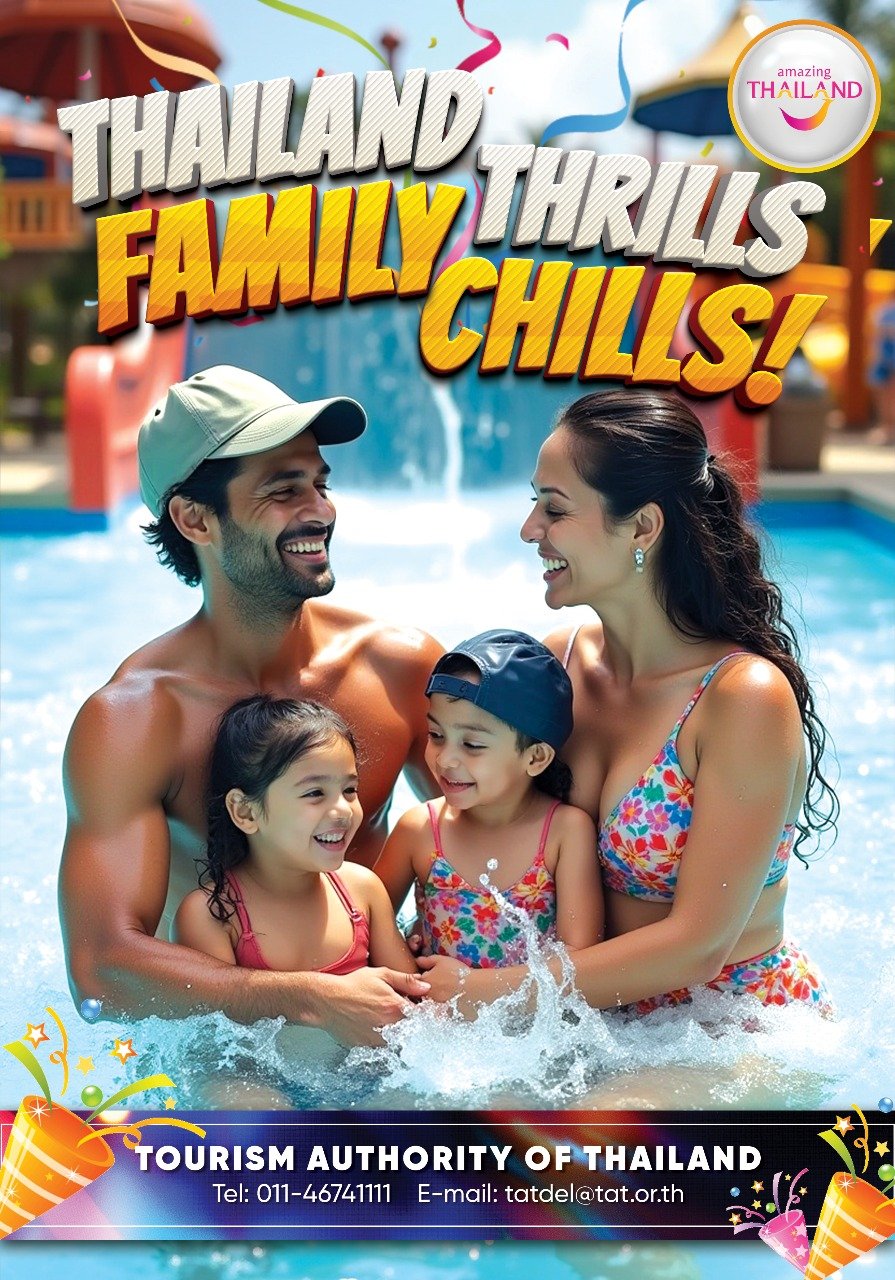

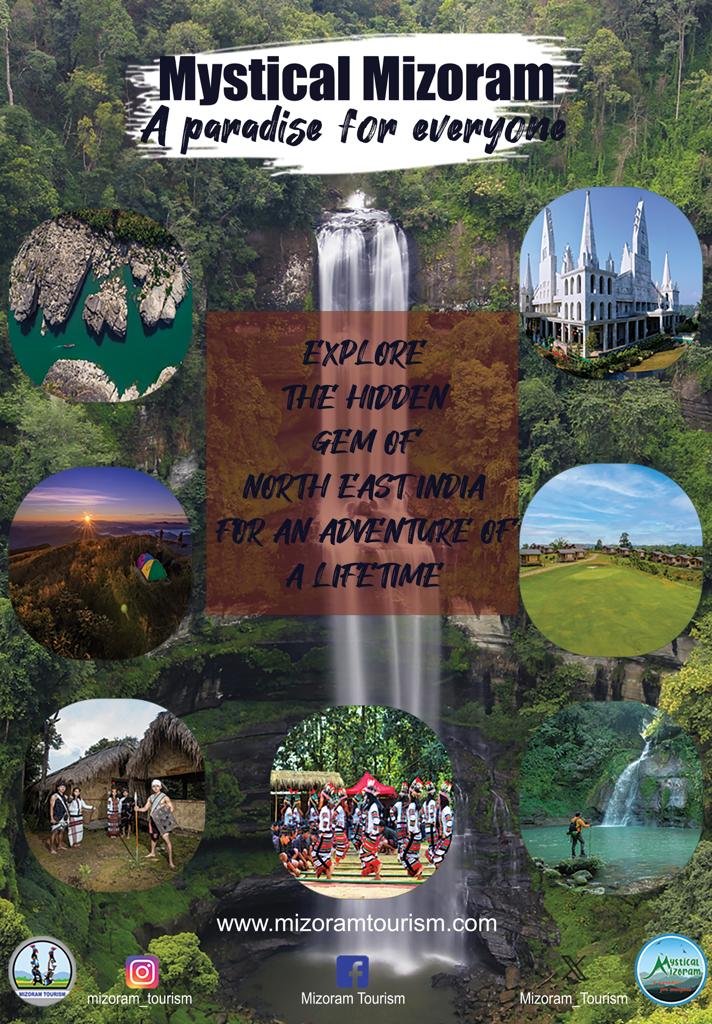



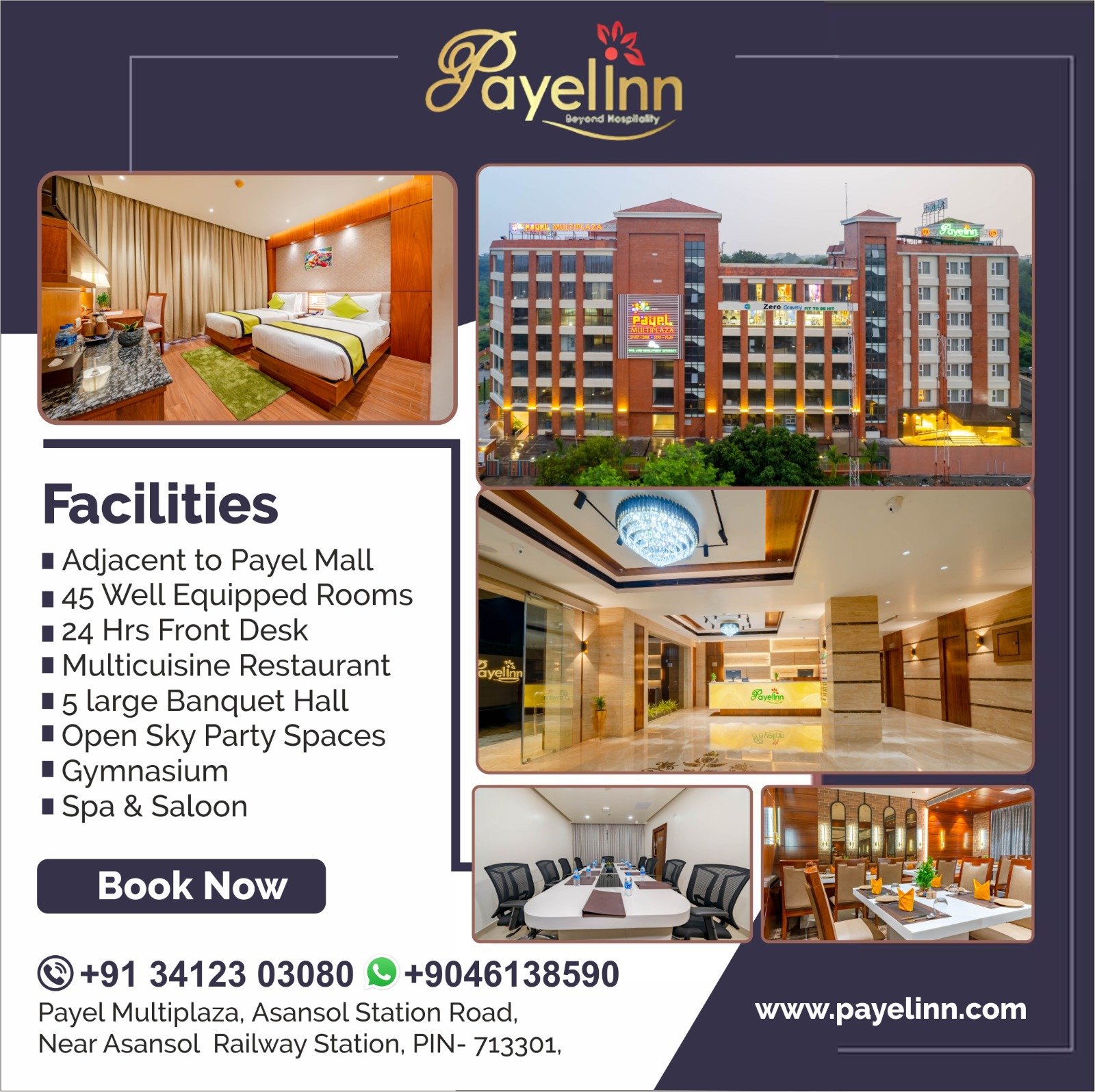

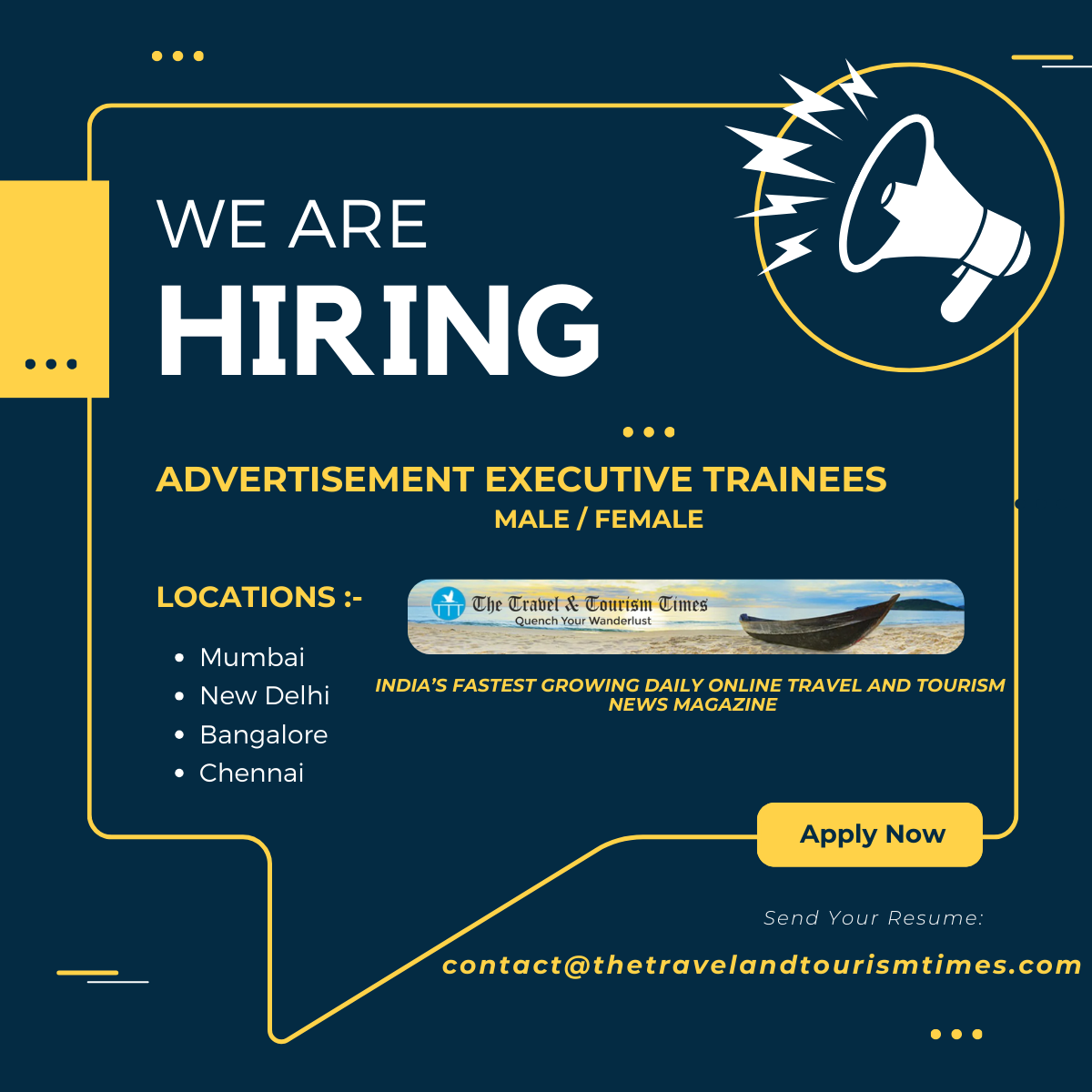
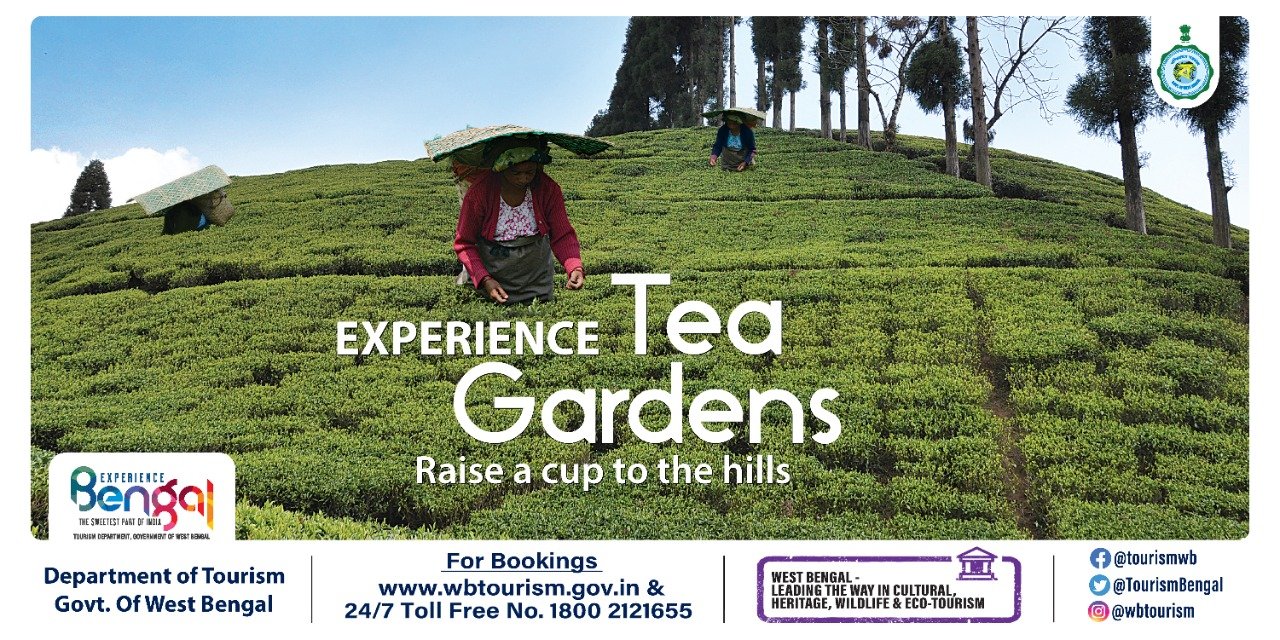

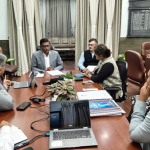


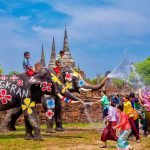
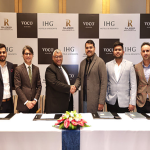
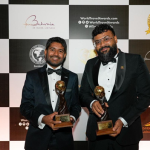


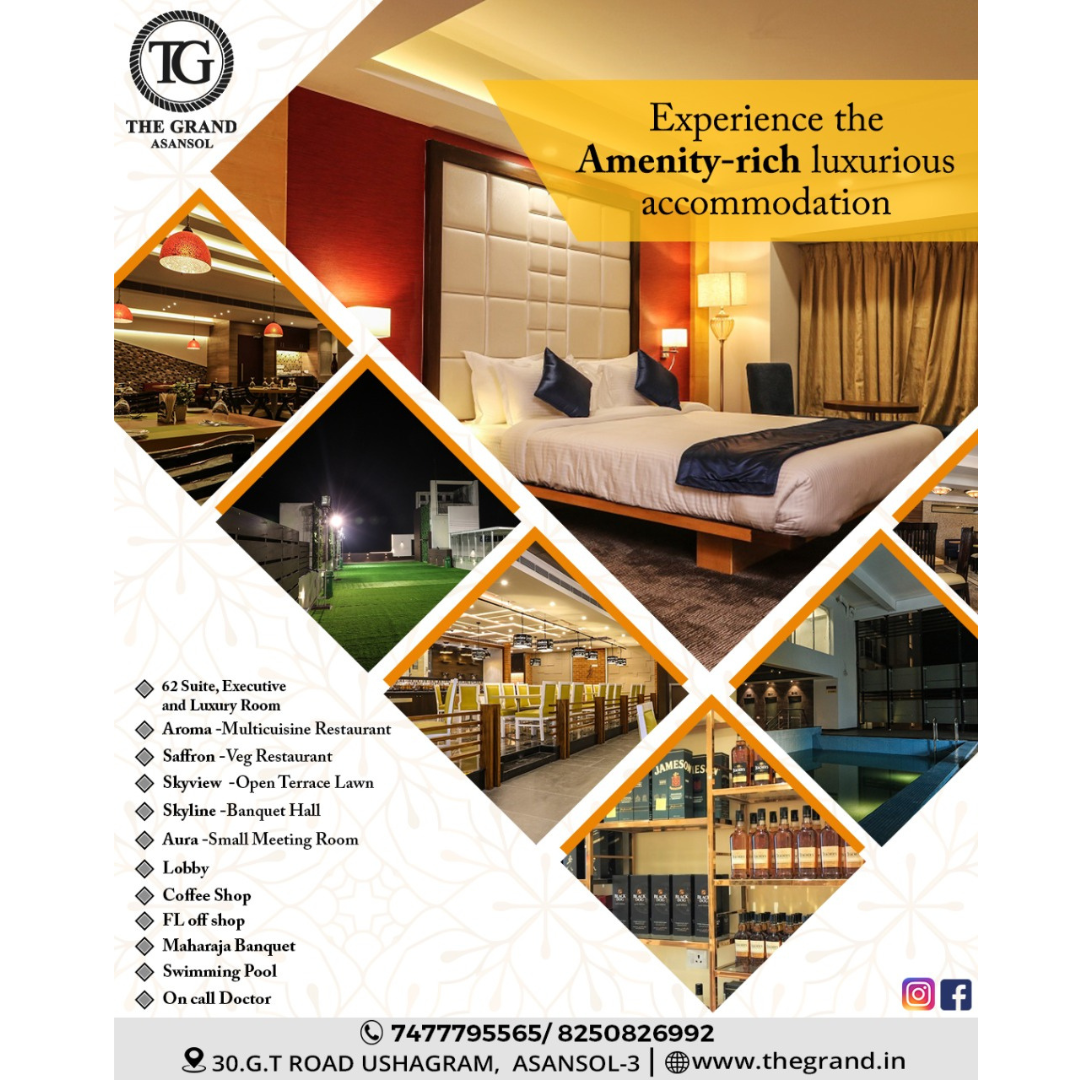
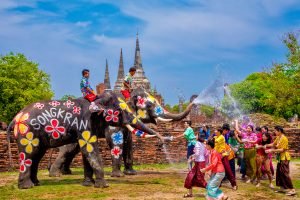

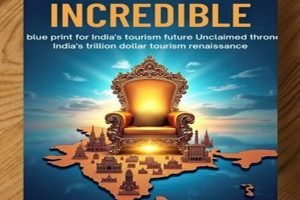







Add Comment